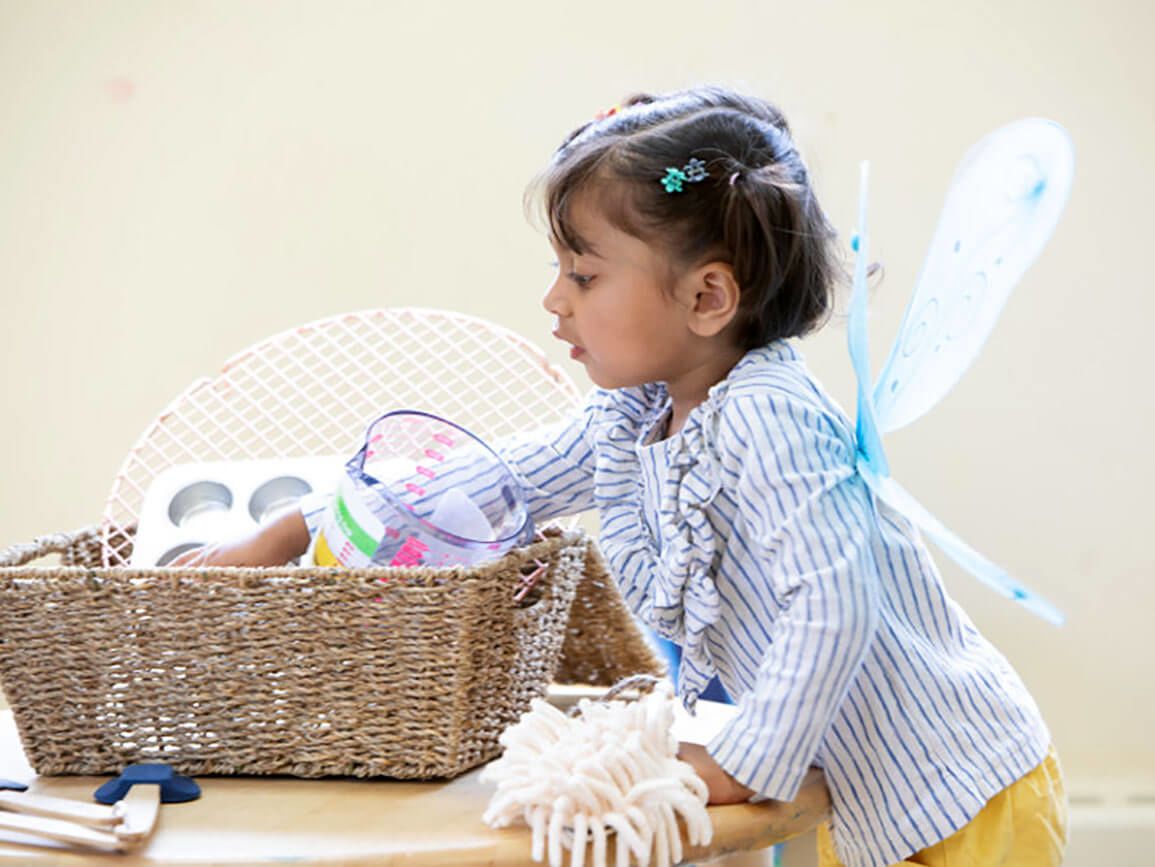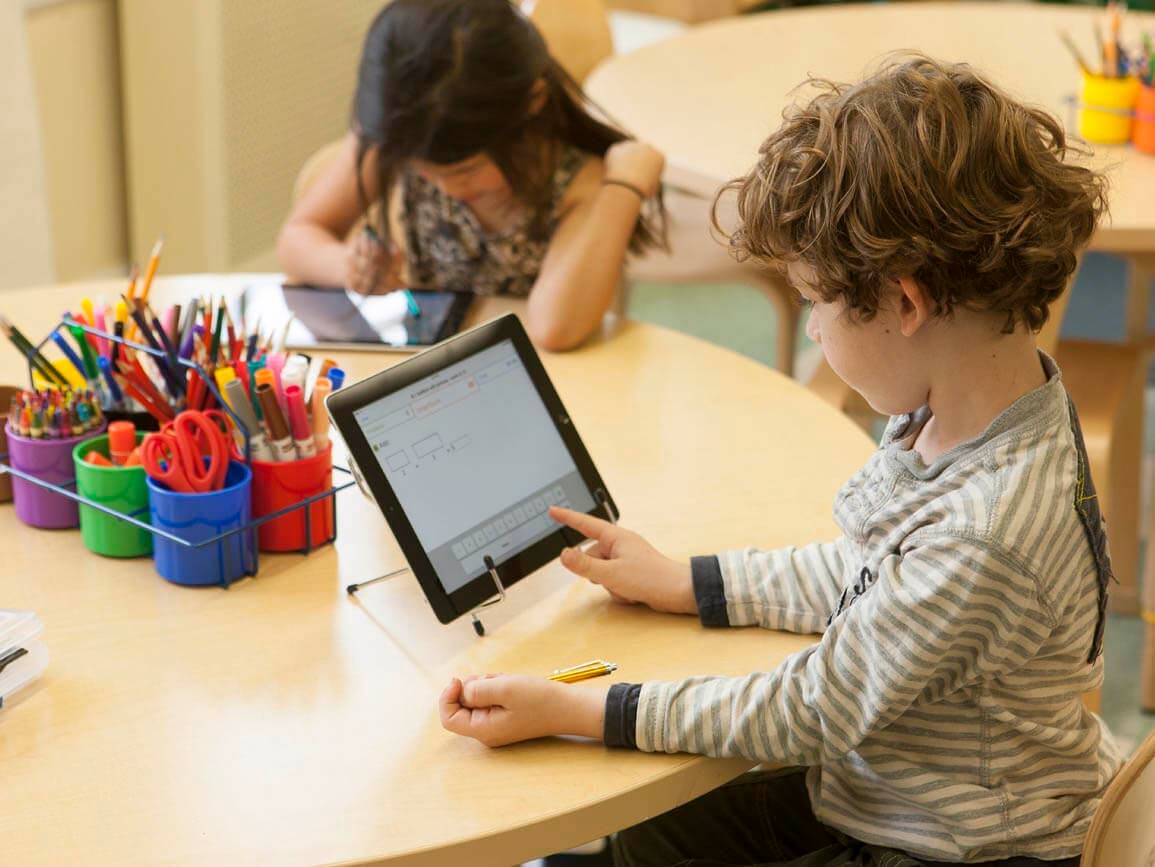Preschoolers are at an ideal age to start helping around the house. They’re building their motor skills so they can tackle basic tasks. They understand simple directions and can remember a few details. And perhaps most important of all, they’re enthusiastic and excited about participating in their everyday world. They want to help!
The Benefits of Children Helping at Home
Letting preschoolers help around the house offers numerous benefits:
- Building confidence
- Creating unity
- Strengthening skills
Building Confidence
Nothing says, “I trust and value you” like being allowed to do something important. Children want and need to make a contribution. “Contribution directly fosters resilience,” according to the American Academy of Pediatrics, “because it helps children gain a sense of purpose, something positive to strive toward and achieve.” When children are encouraged to help around the house, they learn valuable lessons about being responsible. They understand the satisfaction that comes from doing a job well.
Creating Unity
Working together creates family unity. It’s also a great way to transfer family culture and values. Spending a day outdoors in the yard as a family weeding, raking leaves, planting flowers, or cleaning outdoor furniture, for example, communicates that you believe in work, you value a safe, clean home, and you enjoy spending time with the family.
Strengthening Skills
Think about the skills and concepts a child gains by helping make a bed: focus, attention, increased motor skills, and awareness of patterns and sequence (first we pull up the bedding, etc.). Seemingly mundane household tasks are a goldmine of opportunity for young children. From sorting socks to setting the table, children learn so much from helping around the house.
The Basics
You know it’s good for your preschooler to help, but let’s face it — sometimes it’s just faster and easier to do everything yourself. How can you bolster your preschooler’s independence and confidence—and keep your sanity?
- Be strategic
- Make it easy
- Develop a habit
- Create a culture of teamwork
Be Strategic with Household Chores
First, it’s okay to do some of those household tasks yourself. Going to the grocery store, for example, is highly educational for a preschooler, but it’s often exhausting for parents. If possible, don’t take your child to do the regular weekly shopping—when you know you’ll be there for a while—or when the store is crowded. Instead, take your child along when you need a few things—and you have the time and patience to let your child help. Think about small moments when it makes sense for your child to lend a hand—sorting socks, picking up toys, or putting clothes in the hamper.
Make it Easy for Your Child to Complete
Think about your child as you develop systems for keeping your life—and home—in good working order. Keep a child-size broom and dustpan in the closet, for example. Let your child use damp microfiber cloths instead of harmful cleaning products to wipe up minor spills. Store toys and books in labeled bins so your child knows exactly where to put things. Deconstruct a task into steps, e.g., “You put away the dinosaurs and I’ll pick up the books.” Put a duvet on your child’s bed instead of sheets to simplify making the bed. Let go of perfectionism and offer a positive word for effort.
Develop a Habit of Doing Activities Together
Traditions and rituals lay the foundation of family life because they become something children can depend on—even when life gets busy. Try to build a few consistent moments in your day when your child can expect to help. Perhaps you do a “10-minute Tidy” or your child puts her clothes in the hamper before bedtime. Maybe your child is expected to take her plate to the sink after each meal. It doesn’t need to be elaborate, but ask your child to do a few simple tasks each and every day. As your child gets older, give additional responsibilities.
Create a Culture of Teamwork
Helping around the house is about more than merely checking off boxes on a to-do list. It’s about working as a team so that everyone gets what they need. Your child might be expected to make her lunch or unload the dishwasher every day. When she’s really busy, though, another family member can step in to help. Learning to see a need and stepping up to help is a valuable skill, both in the home and in the workforce.
Engage and Watch Them Flourish
Findings from research conducted by Marty Rossmann at the University of Minnesota confirm what many parents already suspect: when children do chores from an early age, they are more successful and self-motivated later in life. Ignore the temptation to do all the chores and get children engaged in helping early in life. They’ll thank you later!
Bright Horizons Parent Webinar: Boosting Your Child's Independence and Resilience
Is your child in the “I can do it myself!” stage? Whether your child tries to pour milk from the heavy carton, or, jumps back on the jungle gym after a slip, she’s demonstrating independence and resilience. How can you foster these two incredibly important emerging skills?
Resources Related to Preschooler Development
- Four moms share which household chores children can actually help with.
- Learn how preschool differs from pre-kindergarten and why pre-k is so important.
- Discover ten activities to encourage preschool independence.





